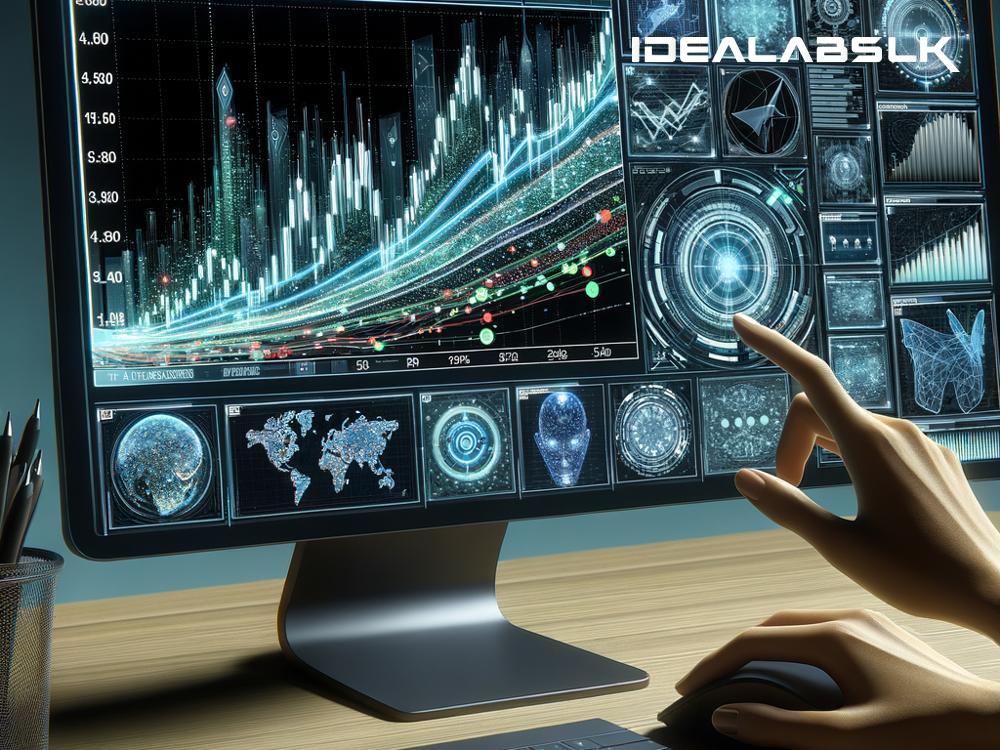AI in Trading: Disrupting the Stock Market with Smart Tech
In recent years, the stock market, a bustling hub of numbers, trends, and predictions, has witnessed a seismic shift, much of which can be attributed to the entry of a silent yet impactful player: artificial intelligence, or AI. Gone are the days when stock market trading was solely the realm of humans, with piles of papers and the telephone being their trusty companions. The landscape is evolving, and AI is at the forefront of this revolution, transforming how trades are conducted, decisions are made, and strategies are formulated. Let's dive into the world of trading, untangling the complexities of AI and understanding how it's redefining the very essence of the stock market.
What is AI, anyway? Simply put, AI is the brainchild of our endeavor to create machines that can think, learn, and act like humans. It’s about teaching computers to process information and make decisions based on that data, much like a human trader would, but at speeds and scales unimaginable to us mere mortals!
The Game Changer in Trading The most profound impact of AI in the trading world is perhaps its ability to process and analyze gargantuan amounts of data in the blink of an eye. In the stock market, where time is money, and decisions need to be made in fractions of seconds, AI's ability to quickly digest news, financial reports, stock trends, and even social media buzz is a game-changer.
Risk Management like Never Before One pivotal role that AI plays in trading is in the realm of risk management. By forecasting potential downturns or market shifts, AI tools help traders mitigate risks more effectively. They can simulate countless scenarios in seconds, providing traders with insights on the most probable outcomes, thus informing better, more secure investment decisions.
Predictive Analytics: Peering into the Future AI's predictive prowess is akin to having a crystal ball. By examining historical data, market conditions, and even the potential impact of socio-political events, AI can offer forecasts with surprising accuracy. While it's not infallible, its ability to predict short-term market movements and trends is invaluable for traders looking to gain an edge.
Automated Trading: Set It and Forget It Perhaps the most visible sign of AI's influence in trading is automated systems or algorithms that can execute trades based on predefined criteria. These systems can monitor the markets 24/7, executing trades at the optimal moment, something human traders can't feasibly accomplish. It democratizes trading, allowing even those with minimal experience to participate.
Customization and Personalization AI systems are also capable of learning a trader's preferences, risk tolerance, and strategies, and can tailor their analyses and recommendations accordingly. This level of customization ensures that traders aren’t just working with generic data but are receiving insights uniquely pertinent to their trading style and goals.
The Challenges and the Future Path However, it's not all sunshine and roses. With AI's integration into trading, several challenges loom. The primary concerns revolve around security, ethical use of AI, and the potential for market manipulation. Moreover, the reliance on algorithms raises questions about the loss of human intuition and judgment in trading decisions.
Despite these challenges, the future of trading with AI looks bright. As technology advances and our understanding of AI's capabilities deepens, we're set to witness more innovative applications in trading. From more sophisticated predictive analytics to even greater levels of personalization, AI will continue to redefine the boundaries of what's possible in the stock market.
Closing Thoughts As we stand on the cusp of this new era in trading, it’s clear that AI is not just a fleeting trend but a paradigm shift in how we approach the stock market. Its ability to process vast amounts of data, make predictions, manage risks, and automate trading processes presents an unprecedented opportunity for traders. While the integration of AI comes with its set of challenges, the potential benefits it offers are too significant to ignore. Embracing this change, with a mindful approach to its challenges, will ensure that the future of trading is not only smarter but also more inclusive and efficient.
In essence, AI in trading is not just about technology taking over; it's about harnessing this technology to amplify our human capabilities, making us better, smarter traders. The journey ahead is as exciting as it is uncertain, and one thing is for sure – the stock market, as we know it, will never be the same.

